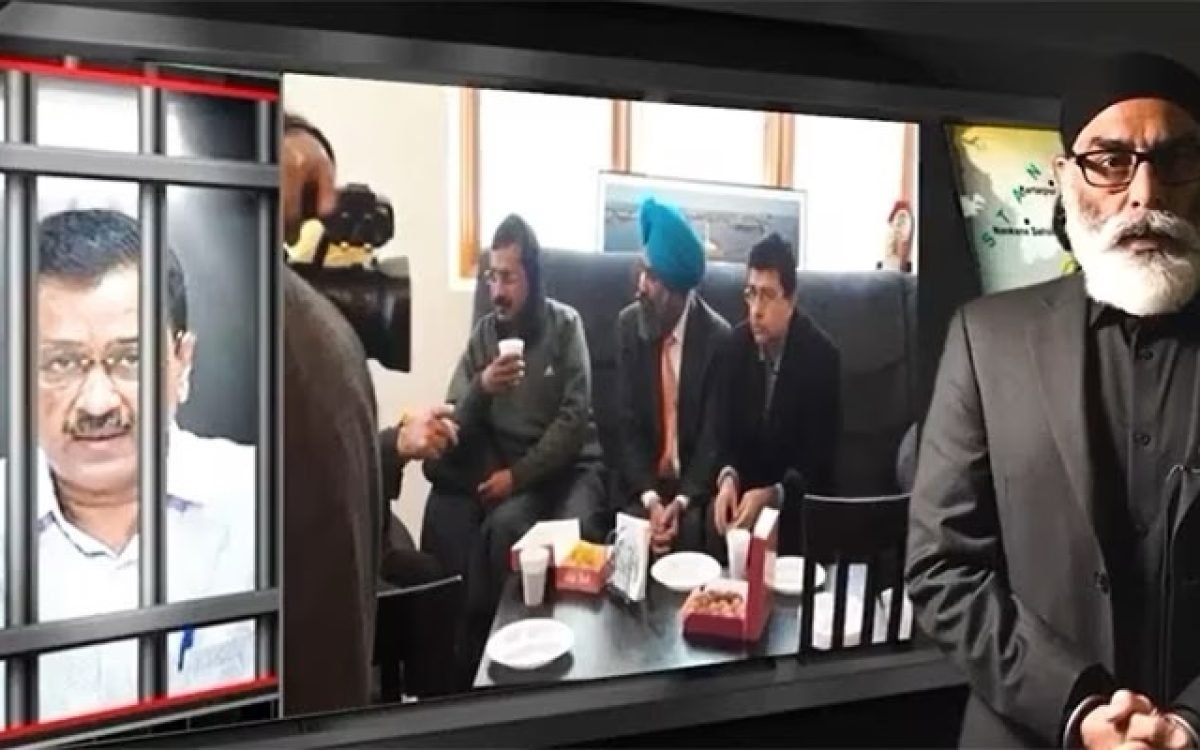In a recent video statement, Gurpatwant Singh Pannun, the self-proclaimed Khalistani terrorist and founder of the organization Sikhs For Justice (SFJ), has ignited controversy by leveling serious allegations against the Aam Aadmi Party (AAP). Pannun alleges that AAP received substantial funding from Khalistani groups, totaling USD 16 million, purportedly to finance elections. Additionally, he claims that AAP leader Arvind Kejriwal pledged to release Khalistani terrorist Professor Devinder Pal Singh Bhullar within hours of forming a government in Delhi. These allegations, if proven true, raise serious concerns about the integrity and transparency of AAP’s electoral processes and political agenda.
Allegations and Accusations: A Complex Web of Claims
Gurpatwant Singh Pannun’s video statement has brought to light a web of accusations, implicating AAP in ties to Khalistani groups and allegations of receiving funding from pro-Khalistan sources. Pannun’s claims suggest a deep-rooted nexus between political ambition and secessionist agendas, casting a shadow over the integrity of AAP and its leaders. The gravity of these allegations warrants thorough investigation and scrutiny by relevant authorities to ascertain the veracity of the claims and ensure accountability.
Political Machinations: The Intersection of Power and Ideology
The allegations leveled by Pannun underscore the intricate interplay between political power and ideological affiliations. By purportedly courting Khalistani support, AAP faces scrutiny over its commitment to democratic principles and national integrity. The promise of electoral victory at the cost of aligning with secessionist interests raises troubling questions about AAP’s moral compass and its willingness to compromise on core values for political gain.
Protests and Denials: AAP’s Response to the Allegations
In response to Pannun’s allegations, AAP has vehemently denied any ties to Khalistani groups or receipt of illicit funding. Party leaders have dismissed Pannun’s claims as baseless and politically motivated, emphasizing AAP’s commitment to upholding democratic norms and rejecting any association with separatist ideologies. However, the gravity of the accusations warrants a thorough investigation by relevant authorities to ascertain the veracity of the claims and ensure accountability.
The Shadow of Past Controversies: A History of Allegations
This is not the first time AAP has been embroiled in allegations of ties to Khalistani groups. In March 2022, SFJ sent a letter accusing AAP of deceitfully securing Khalistani votes and funds to win elections in Punjab. While the authenticity of the letter was later contested by SFJ itself, the recurrence of such accusations underscores the need for transparency and vigilance in political processes to safeguard against external influence and subversion.
Upholding Democratic Values: Ensuring Accountability and Transparency
As allegations continue to swirl, it is imperative for AAP to demonstrate its unwavering commitment to democratic values and ethical governance. Transparency in campaign financing, accountability in political alliances, and integrity in electoral practices are essential to preserving the integrity of India’s democratic institutions. Any substantiated evidence of wrongdoing must be met with swift and decisive action to uphold the rule of law and restore public trust in the political process.
Conclusion: Navigating the Intersection of Politics and Ideology
The allegations leveled against AAP by Gurpatwant Singh Pannun and SFJ underscore the complex interplay between political ambition, ideological affiliations, and electoral strategy. As India navigates the intricate landscape of democracy, it is incumbent upon political parties to uphold the highest standards of integrity, transparency, and accountability. Only through a steadfast commitment to democratic principles can India safeguard its unity, sovereignty, and democratic ideals in the face of external threats and internal challenges.









